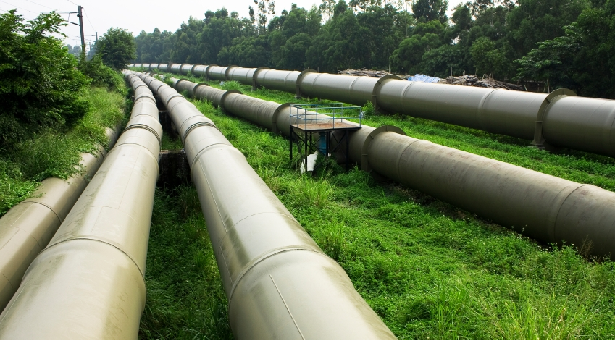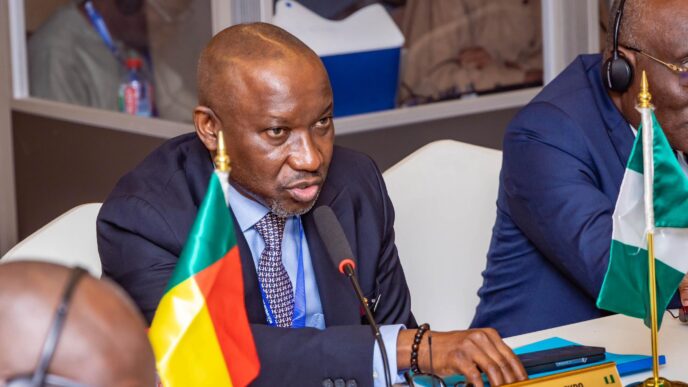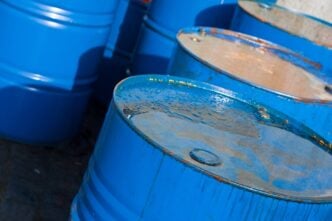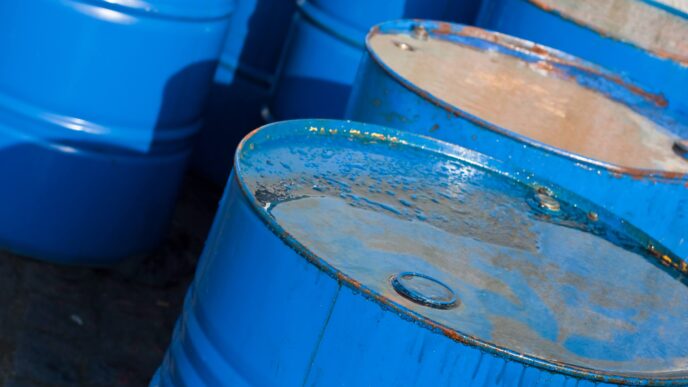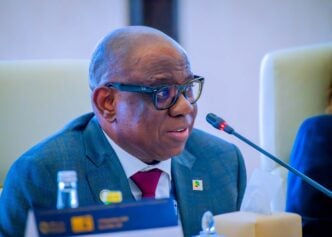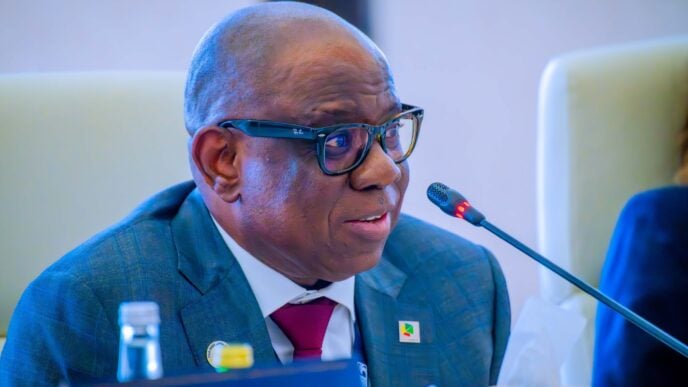The Depot and Petroleum Products Marketers Association of Nigeria (DAPPMAN) has asked the federal government to address the country’s ageing pipelines, inefficient ports, and other infrastructure gaps affecting the downstream oil sector.
Moroti Adedoyin-Adeyinka, chairperson of DAPPMAN, spoke on Wednesday at the OTL Africa downstream week 2025 in Lagos.
According to NAN, Adedoyin-Adeyinka, represented by Ngozi Ekeoma, group managing director of Nepal Energies Limited, delivered a paper on trade and infrastructure challenges in Nigeria’s downstream sector.
The DAPPMAN chairperson said the Dangote refinery’s 650,000 barrels-per-day (bpd) capacity represents a major step toward ending fuel imports, but warned that weak infrastructure could undermine its impact.
Advertisement
She said Nigeria’s pipelines, ports, and storage depots require urgent rehabilitation to support new refining capacity and improve supply chain efficiency.
“Most of the country’s pipeline network, built over 40 years ago, suffers from vandalism, under-capacity, and poor maintenance,” Adedoyin-Adeyinka said.
The chairperson said these problems force marketers to depend heavily on road transport, increasing costs, delaying distribution, and exposing products to risks.
Advertisement
The DAPPMAN leader also identified shallow drafts, port congestion, and cumbersome customs procedures as barriers to efficient product movement.
She urged the government to digitalise port operations, simplify customs processes, and improve turnaround times to boost trade competitiveness.
Adedoyin-Adeyinka said the Petroleum Industry Act (PIA) provides a strong foundation for reform through the Nigerian Midstream and Downstream Petroleum Regulatory Authority (NMDPRA) and the midstream and downstream gas infrastructure fund (MDGIF).
However, she expressed concern over slow implementation, weak coordination, and policy delays that create uncertainty for investors and hinder sectoral reform.
Advertisement
The DAPPMAN chair called for the creation of a downstream infrastructure implementation task force within the NMDPRA to fast-track projects, harmonise tariffs, and ensure open access to facilities.
“The PIA must move from paper to practice through transparent tariffs and effective deployment of the MDGIF to close logistics gaps,” she said.
‘EMERGENCE OF MODULAR REFINERIES MARKS SHIFT TOWARD SELF-SUFFICIENCY’
Adedoyin-Adeyinka said the emergence of new private and modular refineries across several states marks Nigeria’s shift toward fuel self-sufficiency, stressing that the progress must be supported with strategic infrastructure investments.
Advertisement
The chairperson proposed the development of pipelines linking the Dangote refinery to inland depots, expansion of northern storage facilities, and establishment of digitalised truck parks to enhance safety and efficiency.
On regional trade, she called for harmonised product standards within ECOWAS and the African Continental Free Trade Area (AfCFTA), as well as the creation of cross-border depots in neighbouring countries.
Advertisement
The DAPPMAN executive said aligning infrastructure with refining capacity could position Nigeria as Africa’s leading downstream logistics and energy hub.
Adedoyin-Adeyinka also sought government support through infrastructure tax credits, energy bonds, and local financing to empower indigenous marketers and logistics operators.
Advertisement
“The end of fuel imports is near. But progress depends on whether our infrastructure and policies match our refining growth,” she said.
She added that with accountability and urgency, Nigeria could meet its fuel needs and become West and Central Africa’s energy trade hub.
Advertisement
